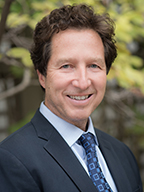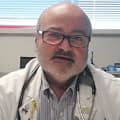Mesothelioma Doctors
Choosing a mesothelioma doctor is the most important step after diagnosis. Get help finding a specialist near you and preparing for your first appointment.
Key Points
-
1
After being diagnosed, it's ok to take some time to determine the right doctor for you.
-
2
Preparing ahead of time for the first appointment can make the experience less stressful.
-
3
Having questions ready to ask your doctor can ensure you're well informed about your diagnosis.
-
4
First appointments with your specialist are often 1-3 hours and will cover a lot of information.
Finding a mesothelioma specialist is one of the most important decisions you can make after your diagnosis. Because the cancer is so rare, your primary physician will likely not fully understand the disease or how to best treat it. A mesothelioma doctor has expertise in the disease, and will be the best person to evaluate your individual case and give you the best mesothelioma advice in terms of treatment and care. Many mesothelioma doctors are also leading or participating in the latest mesothelioma research, and may be able to provide access to promising emerging treatments through clinical trials.
Following a diagnosis, you’ll likely face an overload of information with so many decisions to make, on top of trying to deal with your emotions around the reality of the situation. Choosing the right specialist who can help you through the process and support you through treatment and after-care can make such a difficult time more manageable.
Tips for Choosing the Right Doctor
Even choosing a primary care doctor can take endless research, recommendations, and many doctors’ visits to find the right one for you. But when facing cancer, especially an aggressive one like mesothelioma, it can feel like there’s no time to slow down or delay treatment by any means. It’s important to step back and realize that taking the time to find a doctor that not only specializes in mesothelioma, but one that also meets your individual preferences and needs can make all the difference in your cancer care.
Since malignant mesothelioma is so rare, many malignant mesothelioma doctors are scattered at various cancer institutes throughout the country. Some of the top mesothelioma doctors today are located at comprehensive care centers including Brigham & Women’s Hospital in Boston, the UCLA Medical Center in Los Angeles, Mount Sinai Medical Center in New York and the Baylor College of Medicine in Texas. For some patients, it may be necessary to travel to reach these top mesothelioma cancer clinics, especially if they enroll in a particular clinical trial. As patients research their options, they should consider how far they might be willing to travel and the potential secondary costs.
How to Prepare for Your Appointment
It’s common to feel overwhelmed or anxious for your first appointment with your new oncologist. Rest assured that mesothelioma experts will understand your situation and are experienced in presenting information and answering questions regarding your diagnosis. Getting organized before your initial appointment can help settle some of the nerves and allow the first appointment to go much more smoothly.
Questions to Ask Your Doctor
You likely have many questions running through your mind after a diagnosis, and it can be hard to even know where to begin. It might be helpful to first consider, “how much do I want to know?” Some patients want all of the information they can get, while others would rather just know their life expectancy and what treatment options can give them the best chance of becoming a mesothelioma survivor. Ultimately, it’s the patient’s decision about what conversations to have with their care team.
Here are some example questions to consider asking your mesothelioma specialist when you first meet, which can be a good starting point:
As you move along after your first appointment and treatment, keep track of any other questions that arise from yourself and your loved ones. It’s important to continue to communicate with your doctor about any questions or concerns you might have throughout the journey, so you can be as informed as possible and an active participant in your own care.
What to Expect at Your First Appointment
Your first appointment will likely be a whirlwind of information, meeting many different faces of the medical staff and getting a better sense of what’s ahead in your journey. Overall, the meeting will let you get a better understanding of your diagnosis, prognosis, and your treatment options.
Sometimes, the details of a mesothelioma diagnosis, like prognosis, can seem discouraging, but your doctor will be honest with you about treatment options, including any possible clinical trials, that could potentially extend survival. It’s a good idea to write the options down to research on your own later and be able to ask more questions at another appointment. A decision does not need to be made immediately, and you should take some time to consider your next steps.
Along with meeting other members of the staff that you will be working with, like nurses, other oncologists, and a social worker, many cancer centers will also have patients meet financial advisors to look over treatment costs and what your insurance plan will cover. It will also be helpful to discuss any secondary costs you might face, like lodging or travel, and seek any recommendations for other ways you can potentially mitigate these expenses.
By the time your first appointment is over, you’ll have a lot of information to consider. Though many patients feel the need to start treatment right away and avoid delaying next steps, it’s important to take some time to go over everything you learned. Do some research on your own, ask some more questions, discuss what lies ahead with your loved ones. Your mesothelioma journey will likely not be an easy road, but with the support of the right medical team and loved ones, there is always hope.
Featured Doctors














































































